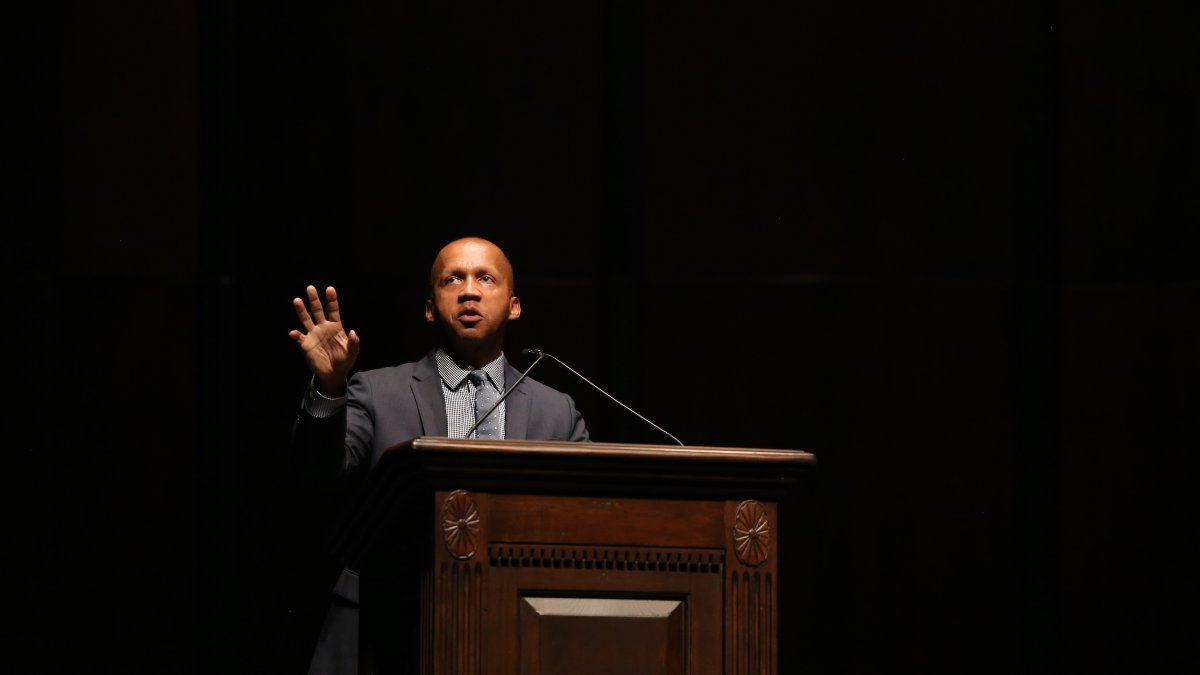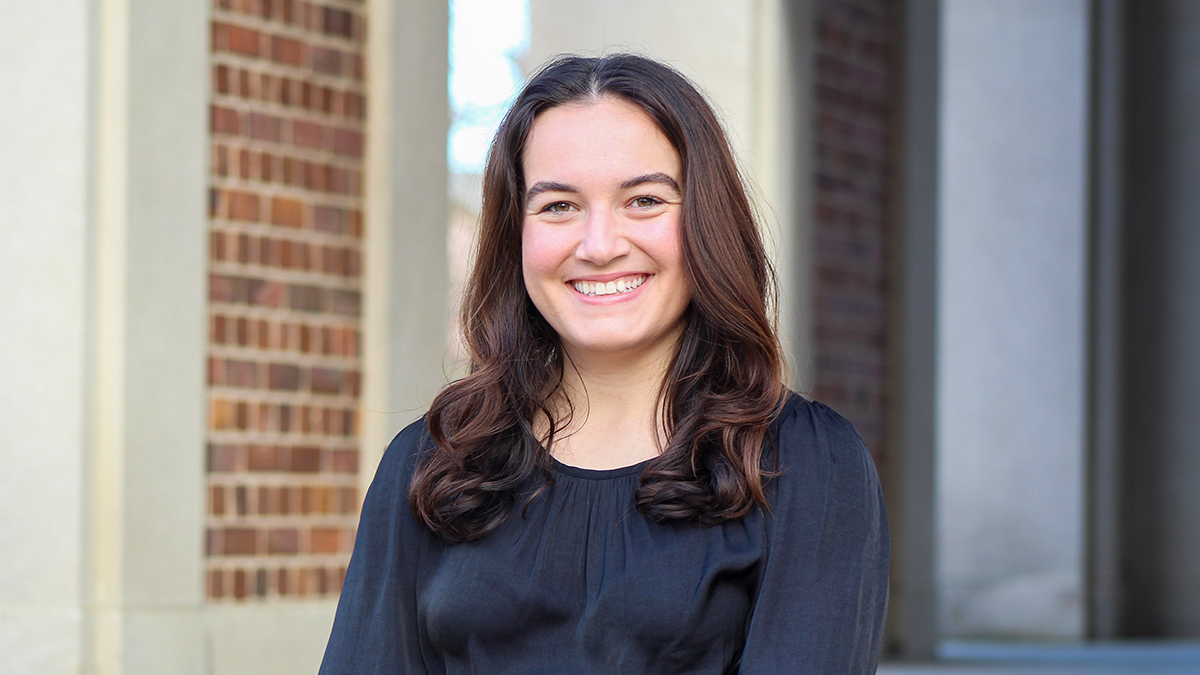Summer Reading author brings empowering message to campus
Bryan Stevenson, author of "Just Mercy" and a practicing attorney, shares his emotional experiences working with clients on death row or children facing lifetime sentences in adult prisons.

For decades, Bryan Stevenson has been fighting against a criminal justice system he believes is biased against minorities and the impoverished — a compelling story read by all incoming first-year UNC-Chapel Hill students as part of the Summer Reading program.
Aug. 17, the lawyer’s message was lifted off the pages of “Just Mercy” and brought to a packed Memorial Hall as he shared his powerful journey to defend some of the country’s most marginalized citizens.
“It’s such an honor to have you with our community at this moment when 4,000 people — probably more — read your book,” Chancellor Carol L. Folt said to Stevenson during the event. “More than that, I think it’s that we share that hope that this generation is not going to sit by, and it’s going to take advantage of this kind of opportunity, guidance and conversation, and help lead us through another level of resolution in our history and our path for the future.”
The hour-long speech, during which Stevenson discussed his work to defend the poor, disabled and minorities, was the climax of the annual Summer Reading program. In its 17th year, the program aims to stimulate critical thinking outside the classroom and give new students intellectual common ground as incoming first-year students.
This year, Stevenson’s “Just Mercy” was selected by the nine-person panel consisting of faculty, staff and students. Focusing on the story of his client Walter McMillian — a young man who had been sentenced to die for a murder he said he didn’t commit — the book discusses how the case transformed Stevenson’s views of the legal profession.
Ultimately, Stevenson went on to found the Equal Justice Initiative, an organization that provides free legal representation to those who have been denied fair and just treatment in the legal system.
Stevenson said he hoped his story would show the students that they, too, can make a change in the world.
“If they are moved by anything they read, if they see things that they don’t like that they think are unfair or unequal, they have the power to change things,” he said. “I think everybody at UNC is at a great school where they’re going to get a fantastic education that will empower them and position them to be an agent of change in the world if they choose to do that. That’s what I hope they take away from the book.”
Earlier in the day, student leaders and faculty members, including Folt and student body president Houston Summers, led discussions about the book with first-year students. The two-hour talks — held in classrooms and dorms — discussed the legal system and racial injustice to intellectually stimulate the students.
The in-depth analysis of the book and Stevenson’s stories didn’t end there, however.
More than 1,000 students, faculty and staff — many with copies of “Just Mercy” in their hands — filled Memorial Hall at 6 p.m. to hear the lawyer share stories from his career of defending those stuck in what he believes is a broken justice system.
Through sharing his emotional experiences of working with clients on death row or children facing lifetime sentences in adult prisons, Stevenson shared what he considered the facets required to create change: proximity, changing the narrative, remaining hopeful and doing what is uncomfortable.
“There is something powerful when we allow ourselves to be proximate to the things that need to change, when we allow ourselves to change narratives, when we allow ourselves to be hopeful, when we allow ourselves to do the uncomfortable,” he said. “Some of you will have to stand when people are sitting. Some of you are going to speak when others are silent. When you do it with the hope of justice, you change the world.”




